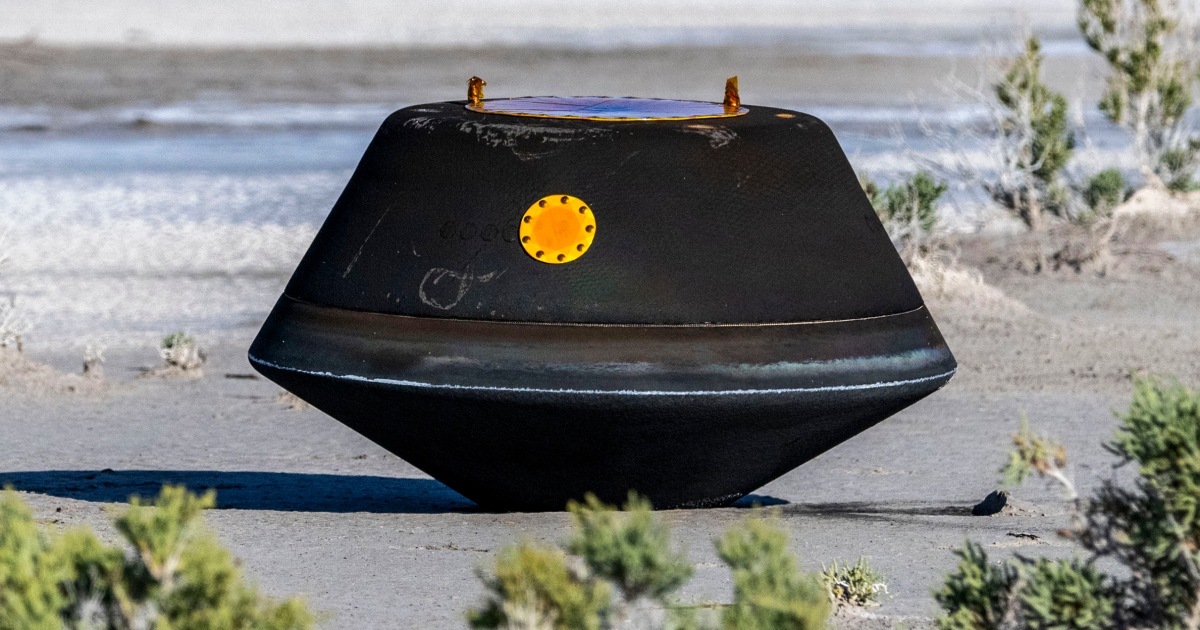
“Thousands of dedicated men and women in the intelligence community and law enforcement are working tirelessly to prevent the subversion of our democratic processes by Beijing, Moscow and Tehran.”
Intelligence Fun Fact:
Solving a Critical Infrastructure Crisis - A Guide for Intelligence Analysts
In an increasingly interconnected world the security of critical infrastructure, including energy grids, transportation systems, and communication networks, is of paramount importance. Intelligence analysts play a crucial role in identifying, assessing, and mitigating threats to these essential assets. This guide outlines a step-by-step approach that intelligence analysts would follow when addressing a critical infrastructure crisis:
1. Define the Crisis:
Start by clearly defining the nature and scope of the critical infrastructure crisis. Is it a cyberattack, physical sabotage, natural disaster, or a combination of factors?
Determine the affected infrastructure components, such as power plants, data centers, or transportation hubs.
Understand the immediate and potential long-term consequences of the crisis, including impacts on public safety, the economy, and national security.
2. Gather Information:
Collect all available information related to the crisis. This may include incident reports, eyewitness accounts, security camera footage, sensor data, and intelligence reports.
Collaborate with law enforcement agencies, government organizations, private sector stakeholders, and other intelligence analysts to share and consolidate information.
Leverage open-source intelligence (OSINT), social media monitoring, and news reports to gain additional insights.
3. Assess Threat Actors:
Identify potential threat actors, whether they are nation-states, terrorist groups, criminal organizations, hacktivists, or insiders.
Analyze their motivations, capabilities, and historical tactics to determine their likely involvement.
Consider the possibility of multiple threat actors or coordinated attacks.
4. Analyze Vulnerabilities:
Evaluate the vulnerabilities within the affected critical infrastructure components. This involves technical assessments, security audits, and risk assessments.
Determine if the crisis is a result of pre-existing vulnerabilities or if it represents a novel threat.
Assess the potential exploitation of supply chain vulnerabilities in the infrastructure.
5. Establish a Timeline:
Create a timeline of events leading up to and during the crisis. This helps in understanding the sequence of actions and potential points of intervention.
Identify key milestones, such as the initial breach, detection, response efforts, and the resolution of the crisis.
6. Develop Hypotheses:
Generate hypotheses about the crisis's origin, objectives, and perpetrators. These hypotheses should be based on a synthesis of the gathered information and analysis of threat actors and vulnerabilities.
Consider alternative scenarios and potential false flags that may mislead investigators.
7. Conduct Threat Assessment:
Assess the level of threat posed by the crisis. This involves evaluating the immediate risks, potential cascading effects, and the criticality of the affected infrastructure.
Consider the impact on national security, public safety, and economic stability when determining the threat level.
8. Share Intelligence:
Collaborate with relevant stakeholders, including government agencies, law enforcement, and critical infrastructure operators, to share actionable intelligence.
Provide timely and accurate information to support decision-makers in implementing effective crisis response strategies.
9. Formulate Mitigation Strategies:
Work with experts in the field to develop mitigation strategies and contingency plans that address the crisis. These may include cyber defenses, physical security enhancements, or emergency response procedures.
Consider the need for temporary shutdowns or rerouting of critical infrastructure services to reduce risks.
10. Monitor and Adapt:
Continuously monitor the situation and adapt strategies as needed based on evolving threats and changing circumstances.
Maintain open lines of communication with stakeholders to provide updates and receive feedback.
11. Post-Crisis Evaluation:
After the crisis has been resolved, conduct a thorough post-mortem analysis to assess the effectiveness of response efforts.
Identify lessons learned and areas for improvement to enhance future crisis preparedness and response.
12. Share Best Practices:
Share the experiences and insights gained from the crisis with the intelligence community, critical infrastructure operators, and relevant authorities to strengthen collective resilience.
As you can see, intelligence analysts play a vital role in addressing critical infrastructure crises by providing insights, assessments, and recommendations that inform crisis response efforts. By following this comprehensive guide and leveraging their expertise, analysts contribute a great deal to safeguarding the essential infrastructure upon which modern society relies.
Stay safe out there!
France's Withdrawal from Niger: Geopolitical Shifts and Sahel Security Implications

French President Emmanuel Macron has announced the withdrawal of the French ambassador and troops from Niger in response to the July coup that ousted President Mohamed Bazoum. Macron stated in a televised interview that France's military cooperation with Niger is over, and the 1,500 French troops stationed in the country will withdraw in the coming months, with a complete withdrawal by the end of the year. This decision follows weeks of pressure from both the military and popular demonstrations in Niger.
Niger's new rulers, who had been demanding France's exit, welcomed Macron's announcement, considering it a step towards the sovereignty of Niger. This development mirrors France's recent requests for its troops to leave Mali and Burkina Faso.
Geopolitical Significance:
The decision by French President Emmanuel Macron to withdraw the French ambassador and troops from Niger following the July coup that ousted President Mohamed Bazoum marks a significant shift in France's presence and influence in the Sahel region. This development has broader geopolitical implications for both France and the Sahel region, given the longstanding history of French military involvement in the area.
Strategic Shift in the Sahel:
Macron's decision underscores a strategic shift in France's approach to the Sahel region. The presence of 1,500 French troops in Niger, along with operations in Mali and Burkina Faso, had positioned France as a key player in counterterrorism efforts and stability maintenance in the Sahel. The withdrawal represents a reassessment of this role and may impact regional security dynamics.
Regional Response and ECOWAS:
The response of Niger's new rulers, who welcomed France's exit, indicates a shift in regional dynamics. France's presence had previously been seen as crucial in combating armed groups linked to al-Qaeda and ISIS. The fact that regional countries, including Niger, Mali, and Burkina Faso, formed a mutual defense pact highlights a growing desire for self-reliance and regional security cooperation, which may redefine the balance of power in the Sahel.
Impact on Counterterrorism Efforts:
With France's military withdrawal, there is concern about the potential impact on counterterrorism efforts in the Sahel. Western nations had provided military aid and support to Niger to combat armed groups. The withdrawal could create a security vacuum that may be exploited by these groups, leading to increased instability in the region and a potential resurgence of terrorist activities.
Analyst Comments:
Macron's decision to withdraw French troops from Niger signifies a shift in France's engagement strategy in the Sahel. While it may be seen as a step towards respecting national sovereignty, it raises questions about the Sahel's ability to address its security challenges independently. The mutual defense pact among Sahel countries may help fill the void, but it will require concerted efforts to maintain stability.
This move is not isolated; it comes on the heels of similar requests for French troop withdrawals from Mali and Burkina Faso. France's diminishing influence in the Sahel could open the door for other global powers, such as Russia or China, to step in and expand their presence in the region. The Sahel is strategically vital due to its resources and its proximity to Europe, making it an attractive arena for global power competition.
The situation in the Sahel is delicate, and Macron's assertion that Bazoum remains the 'sole legitimate authority' underscores the complex political dynamics at play. It remains to be seen how this situation evolves, but diplomatic efforts should focus on promoting stability, addressing ethnic tensions, and ensuring that counterterrorism operations are not compromised. The international community needs to closely monitor developments in the region and work towards a comprehensive, multilateral solution.
Russian Foreign Minister Rejects Ceasefire, Criticizes Ukraine Peace Plan

Russian Foreign Minister Sergei Lavrov, speaking at the U.N., expressed Moscow's willingness to engage in negotiations with Ukraine but rejected the idea of a ceasefire. Lavrov criticized Ukraine's 10-point peace plan, proposed by President Volodymyr Zelensky, arguing it was unworkable. That plan included goals like restoring Ukraine's territorial integrity, the complete withdrawal of Russian troops from Ukraine, and the release of prisoners of war and deportees.
Lavrov also discussed Russia's withdrawal from the Black Sea Grain Initiative. That deal had been brokered by Turkey and the U.N. in July 2022. The deal aimed to ensure the safe transport of Ukraine's agricultural exports during the invasion. Russia pulled out of this agreement in mid-July and subsequently targeted Ukraine's agricultural infrastructure and grain stockpiles. Lavrov questioned the deal's effectiveness and suggested it could resume once Russia's demands regarding its agricultural exports are met.
Geopolitical Implications:
Persistent Russian Aggression: Lavrov's statement reaffirms Russia's commitment to maintaining military pressure on Ukraine. By rejecting a ceasefire, Moscow signals its intent to continue hostilities and exert control over Ukraine's eastern regions. This stance aligns with Russia's broader objectives to influence Ukraine's political and security landscape.
Challenging Peace Negotiations: Criticizing Ukraine's peace plan further complicates the negotiation process. Russia's dismissal of the plan, which has wide support from Western allies, underscores the deep-seated divisions and mistrust between the two parties. This situation prolongs the conflict and increases the likelihood of protracted instability in Eastern Europe.
Economic Warfare: Russia's withdrawal from the Black Sea Grain Initiative and subsequent targeting of Ukraine's agricultural infrastructure reveals its willingness to employ economic measures to assert dominance. This tactic poses significant challenges to Ukraine's economy, affects global food security, and amplifies tensions in the region.
Analyst Comment:
Sergei Lavrov's resolute rejection of a ceasefire signifies Russia's unwavering commitment to maintaining an already protracted and intensifying conflict in Ukraine. This signals a prolonged phase of insecurity, with the potential for escalating violence and humanitarian challenges. It's imperative for the international community to closely monitor the evolving security dynamics in Eastern Europe. Moreover, this stance underscores Russia's persistent reliance on military coercion as the linchpin of its strategy to achieve its geopolitical objectives in the region, which has significant implications for regional stability and global security.
Lavrov's critique of Ukraine's peace plan goes beyond mere diplomatic posturing. It reveals Russia's skepticism regarding the feasibility of the proposed solution and highlights a fundamental disconnect in the negotiation process. This disconnect, driven by differing interpretations of Ukraine's future political landscape, may necessitate a reevaluation of international mediation efforts and diplomatic strategies to bridge the gap between the parties.
Russia's withdrawal from the Black Sea Grain Initiative and subsequent targeting of Ukraine's agricultural infrastructure represents a strategic shift towards economic warfare. This approach not only poses immediate challenges to Ukraine's food security and economic stability but also raises broader concerns about the utilization of economic leverage in regional conflicts. Understanding Russia's goals regarding agricultural exports and engaging in talks to return to the grain deal is vital for assessing the evolving economic influence in the region.
Interesting Articles from the Weekend

Stay safe out there



